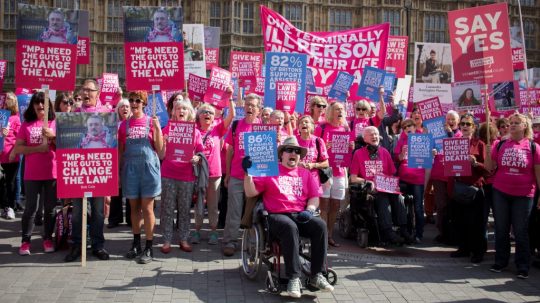A study by the Children’s Commissioner has found that spending on child mental health services has fallen in more than a third of areas in England.
The report revealed that while spending on services, such as school counsellors and drop-in centres, had risen by 17 per cent overall, the rise only occurred in certain local areas.
As a result, many children are now faced with a ‘postcode’ lottery of care.
Anne Longfield OBE said that the report “reveals for the first time the postcode lottery facing the increasing number of children suffering from low-level mental health conditions like anxiety and depression.
“The children I speak to who are suffering from conditions like anxiety or depression aren’t asking for intensive inpatient therapeutic treatment, they just want to be able to talk to a counsellor about their worries and to be offered advice on how to stop their problems turning into a crisis.”
The study focused on care for problems such as eating disorders, anxiety and depression, that if managed early in life prevented the need for intensive, specialist intervention later on.
How Are Services Funded And Why Does The Spending Vary So Much?

Image via Charlein Garcia/ Unsplash
Services are generally funded half by the NHS and half by local authorities. However, the Children’s Commissioner found that certain areas that spent highly on services overshadowed a far larger number of low-spending areas. Due to this, the standard and availability of care varies widely across the country.
Overall, around £226million was spent on children’s mental health services in 2018-2019, representing a 17 per cent increase in real terms on spending in the previous year.
However, while the top quarter of local areas spent £1.1million on these services, the bottom quarter spent £177,000 or less.
A significant 37 per cent of local areas saw a real-terms fall in expenditure, largely as a result of local authority spending. For example, the average spending on these services per child in London was £17.88 compared to £5.32 in the east of the country.
A statement from the Department of Health and Social Care maintains, despite the report, that the government intends to allow 70,000 more children a year to gain access to mental health care in the next two years.
“Early intervention is vital and we’re going further, piloting a four-week waiting time standard for treatment, training a brand new dedicated mental health workforce for schools across the country, and teaching pupils what good mental and physical health looks like,” it read.
Is Access To A Certain Standard Of Healthcare In England A Human Right?

Access to healthcare is a universal human right.
The right to health doesn’t mean you’re guaranteed free healthcare, but it is the right to the highest attainable standard of health.
This means states must give equal access to the right to health for all of us – regardless of who we are, what religion we believe in, our ethnicity, how much we earn or where in the country we live.
In practice, the government must have measures in place to ensure medical services are accessible to everyone.
People who travel to the UK for whatever reason have just as much right to use National Health Services if they need to than any home citizen.
These rights are protected in law in the UK under the Equality Act 2010.







